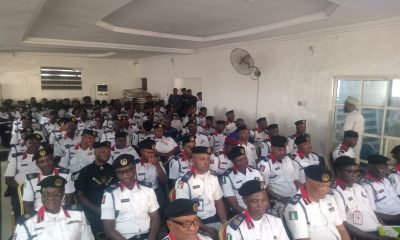News
Osun: YEDIS Trains Over 300, Women In Palm Oil, Palm Kernel Seeds Production, Donates Support Items
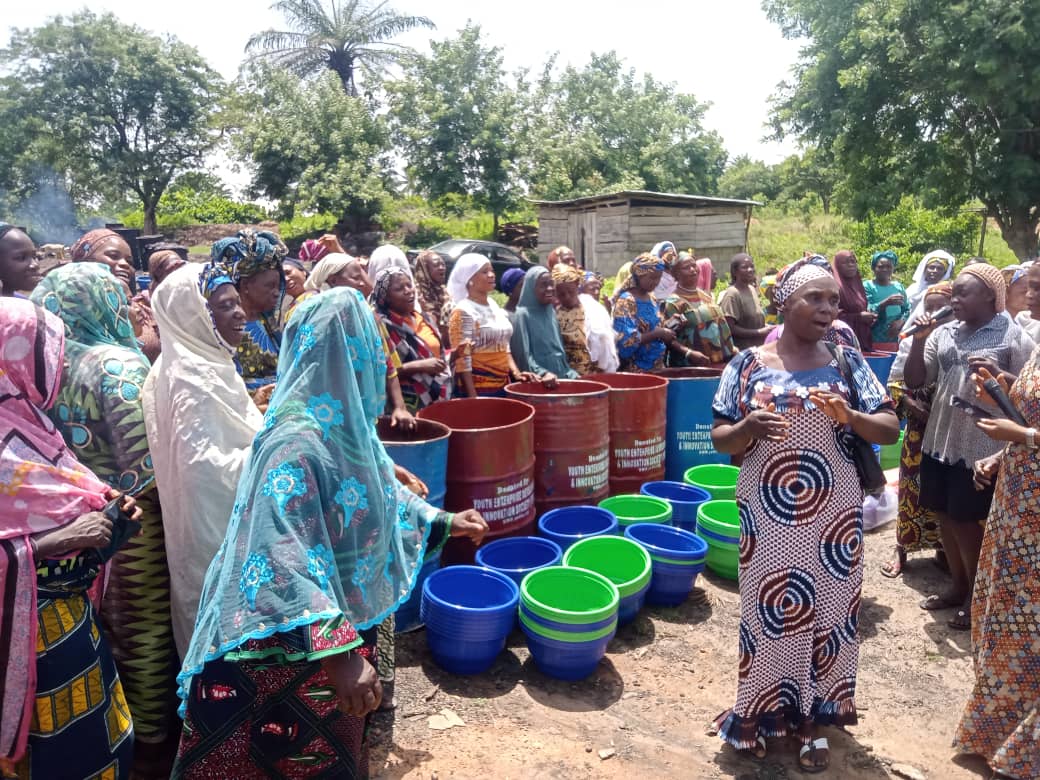
By Rafiu Agboola, Osogbo
A Non Governmental Organization, Youths Enterprise Development and Innovation Society (YEDIS), has called on Government and international agencies on the need to support marginalized communities and introduce water and climate-smart farm practices to advance food security for sustainable employment, gender equality, and community development.
YEDIS emphasized the importance of solid water management for building societal resilience against increased risks.
Speaking at the capacity Building Workshop and Empowerment of Marginalized Women and Girls in Agribusiness, at Obaagun, Osun State, the Executive Director of the Youths Enterprise Development and Innovation Society (YEDIS), Olaore Rafiu Akinpelu, urged the young food farmers to pay attention to agrifood challenges and proactively manage any situation.
Akinpelu added that the United Nations interest in the agrifood transformation system is higher, therefore, emphasizes the promotion of agriculture in every community.
Akinpelu explained that YEDIS is a nonprofit organization in Nigeria that promotes entrepreneurship education, youth employment and community development.
He said his NGO organized the capacity building workshop and empowerment for over 300 women and girls in palm oil and palm kernel seeds production by providing agri-entrepreneurship training for innovation.
He added that they also donated ten iron drums and 200 plastics funnel and palm oil sievers to agrifood women practitioners in Obaagun community, Osun State, Nigeria.
“Osun State is one of Nigeria’s agricultural and agrifood business hubs, having significant numbers of farmers in rural areas.
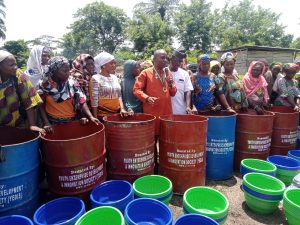
“YEDIS chose the Obaagun community based on its large palm oil production, which women and girls specifically dominate.
“YEDIS Team empowers the women and girls in the Obaagun community to support global food system transformation, advance agrifood production in marginalized communities, promote gender equality and youth employment, and economic development.
“Climate change and natural disasters affect farming in both underserved communities and globally.
“YEDIS’s effort to promote youth employment and community development is sacrosanct, so we will continue to support the agrifood industry, young people’s businesses, and the outgrowth of apprentices services.” he said
The YEDIS executive director explained adequate supply chain management system facilitates food production, decent employment, and economic development.
He said maintenance of an efficient agrifood supply chain, including crop plantation, harvesting, processing, transformation, packaging and storage, marketing, and distribution, adds value to food security and ensures viable employment opportunities.
In her lecture, Mrs Alaje Grace Oluwatosin, Chief Technologist, Faculty of Science, Osun State Polytechnic, Iree, Nigeria, said insufficient clean water limits food production in marginalized communities and exposes people to health danger and unemployment, adding that every farm product requires water, including production, for economic development.
She said, “A clean and plentiful water supply is essential for productive agriculture to supply the public with adequate food and fibre (USDA).
“In underserved communities with primitive farming methods, a lack of mechanized agribusiness systems and non-irrigated agriculture hinder food security and a global food transformation system.
“Clean water is compulsory to provide hygienic and better-quality food, transforming the food systems, facilitate efficient production and creating gainful employment for youth.
“Due to population growth, urbanization, and climate change, competition for water resources will increase, with a particular impact on agriculture.
“The population will likely increase to over 10 billion by 2050, and whether urban or rural, this population will need food and fibre to meet its basic needs.
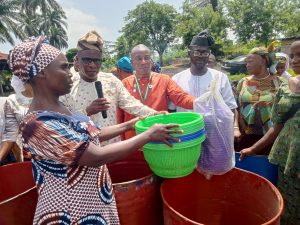
“Combined with the increased consumption of calories and more complex foods, which accompanies income growth in the developing world, estimation shows that agricultural production will need to expand by approximately 70% by 2050 (World Bank).
“Water and climate change are inextricably linked. Climate change affects the world’s water in complex ways. From unpredictable rainfall patterns to shrinking ice sheets, rising sea levels, floods, and droughts – most climate change impacts the water (UN Water).
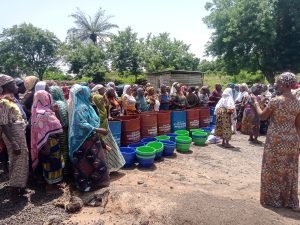
“Climate change and variability. Climate change will lead to more frequent and intense extreme weather events like droughts and floods, devastatingly impacting food production systems. Sound water management is essential for building societal resilience against increased risks (FAO).
“We urged the youth, especially the women and girls in palm oil production, to take advantage of the capacity-building workshop and business empowerment support items provided by the Youths Enterprise Development and Innovation Society (YEDIS) to develop their businesses profitably.
“We encourage a feasible agriculture supply chain to promote exportation, decent jobs for youth, and community development.”

Echoing a similar view, Akinade Motunrayo Ajibike , Head of Local Government Administration, Ifelodun Area Council, Iba, urged the women producing palm oil at the palm oil producing centre to continue to work in peace and avoid anything capable of causing crisis among them.
She added that there won’t be any development in any environment devoid of peaceful coexistence.
Speaking on behalf of beneficiaries, Ebunlomo Adejuji , Tunrayo Adedokun and Comrade Bamigboye Fortunate appreciated YEDIS for counting them worthy and for promoting youth employment and community development.
They promised to make judicious use of the materials given to them.
The palm oil producers at Obaagun palm oil producing centre, also prayed for YEDIS just as they danced and sang to demonstrate how joyous they were by the kind gesture.
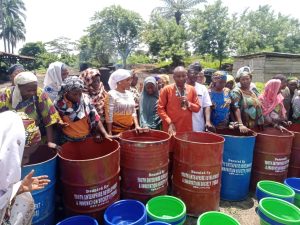
-

 News4 days ago
News4 days agoUpdated: Oyo Police Parade Arrested Yoruba Nation Agitators
-

 News3 days ago
News3 days agoJust In: Adeleke Appoints Former Osun Commissioner For Finance, Bolorunduro Chairman Of Living Trust Mortgage Bank
-

 News4 days ago
News4 days ago‘21 Chibok Girls Return With 34 Kids; 48 Parents Die Of Trauma’
-
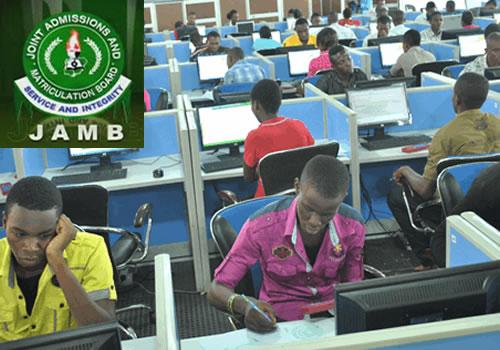
 News1 day ago
News1 day agoBreaking: JAMB Directs CBT Centres To Arrest Parents Found Near Facilities During UTME Exercise


